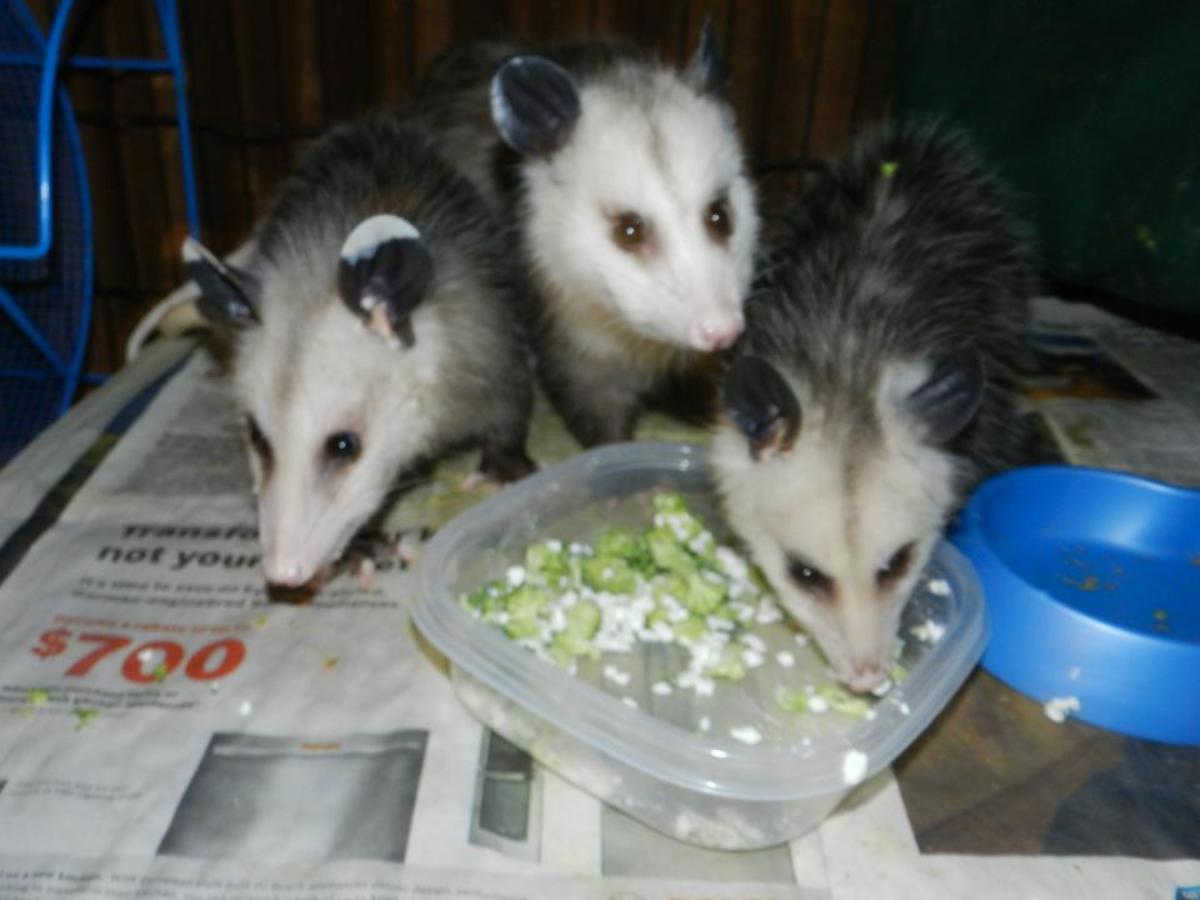
Caring for Baby Possums: A Comprehensive Guide
Introduction
Baby possums, also known as joeys, are adorable and helpless creatures that require specialized care to thrive. Whether you have stumbled upon an orphaned joey or are fostering one from a wildlife rehabilitator, providing proper care is crucial for their well-being and survival. This comprehensive guide will provide you with detailed instructions on how to care for baby possums, ensuring their health and development.
Assessing the Joey’s Condition
Before providing care, it is essential to assess the joey’s condition.
- Age: Determine the joey’s age by its size and appearance. Newborn joeys are tiny and hairless, while older joeys have fur and are more developed.
- Weight: Weigh the joey using a kitchen scale. The weight will help you determine the appropriate feeding schedule and formula.
- Health: Check for any signs of illness or injury, such as discharge from the eyes or nose, lethargy, or wounds.
Creating a Suitable Environment
Baby possums require a warm, dark, and secure environment.
- Nest: Create a nest using a small box or basket lined with soft material, such as fleece or towels.
- Temperature: Maintain a temperature of 85-90°F (29-32°C) for newborn joeys and 75-80°F (24-27°C) for older joeys. Use a heating pad set on low or a warm water bottle wrapped in a towel to provide warmth.
- Darkness: Possums are nocturnal animals, so provide a dark and quiet environment for them to rest.
Feeding
Baby possums require a specialized formula specifically designed for marsupials.
- Formula: Use a commercial marsupial milk replacer or consult with a veterinarian for a homemade recipe.
- Feeding schedule: Feed newborn joeys every 2-3 hours, and older joeys every 4-6 hours.
- Feeding method: Use a syringe or a small bottle with a soft nipple. Hold the joey upright and gently insert the nipple into its mouth.
Hygiene
Maintaining proper hygiene is essential for the joey’s health.
- Cleaning: Gently clean the joey’s body with a warm, damp cloth. Avoid using soap or harsh chemicals.
- Stimulating urination and defecation: After each feeding, gently massage the joey’s abdomen to stimulate urination and defecation.
- Bathing: Bathe the joey every 2-3 weeks using lukewarm water and a mild, unscented soap. Rinse thoroughly and dry the joey with a soft towel.
Socialization
Baby possums benefit from socialization with humans and other animals.
- Handling: Handle the joey gently and frequently to accustom it to human contact.
- Playtime: Provide the joey with toys and opportunities to explore its surroundings.
- Other animals: If possible, introduce the joey to other possums or animals that can provide companionship and socialization.
Health Care
Regular veterinary checkups are essential for monitoring the joey’s health and preventing illness.
- Vaccinations: Possums require vaccinations against common diseases, such as distemper and rabies.
- Parasite control: Treat the joey for parasites, such as fleas and worms, as needed.
- Illness: Seek veterinary attention immediately if the joey shows any signs of illness, such as lethargy, loss of appetite, or respiratory problems.
Releasing the Joey
Once the joey is fully developed and weaned, it is time to release it back into the wild.
- Age: Release the joey when it is approximately 6-8 months old and weighs around 2 pounds.
- Location: Choose a release site that is suitable for possums, such as a wooded area with access to water and food.
- Soft release: Gradually introduce the joey to the wild by providing it with food and shelter for a few days before releasing it completely.
Additional Tips
- Patience: Caring for baby possums requires patience and dedication.
- Research: Conduct thorough research on possum care before taking on the responsibility.
- Consult with experts: Seek guidance from wildlife rehabilitators or veterinarians if you have any questions or concerns.
- Legal considerations: Check local laws and regulations regarding the care and release of possums.
- Enjoy the experience: Caring for baby possums can be a rewarding and unforgettable experience.
Conclusion
Caring for baby possums is a challenging but fulfilling endeavor. By following these comprehensive guidelines, you can provide the necessary care and support to ensure the joey’s health, development, and successful return to the wild. Remember to approach the task with patience, compassion, and a deep respect for these fascinating creatures.
